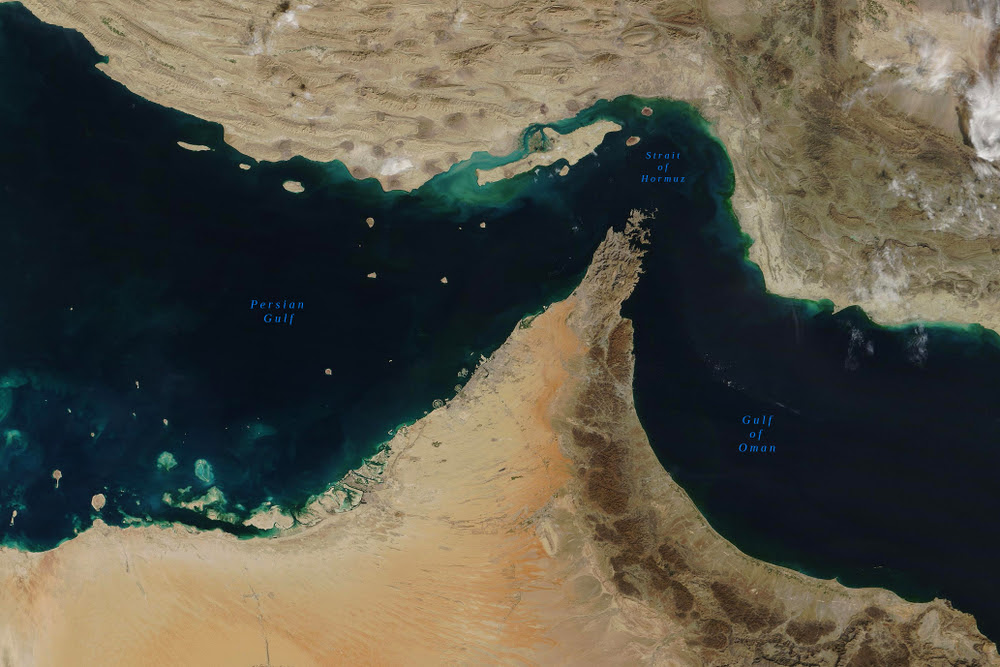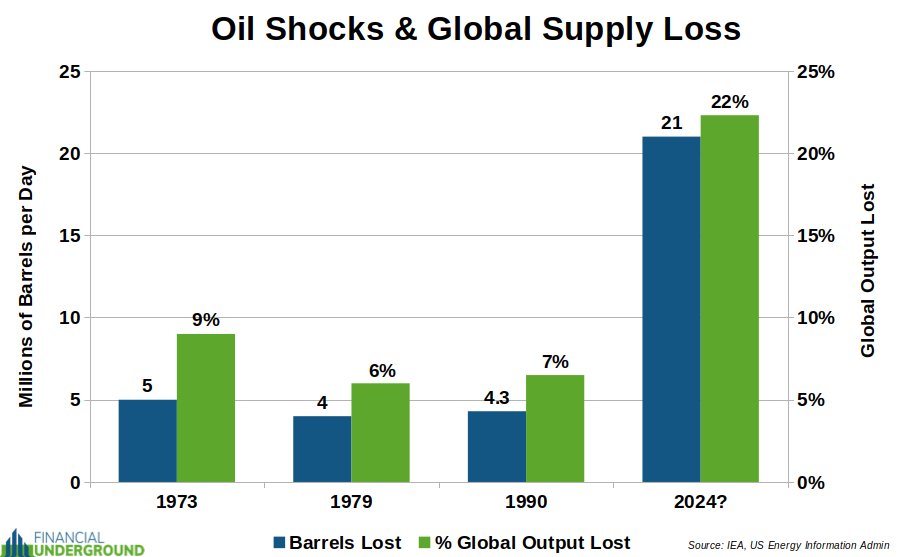The Strait of Hormuz is a narrow strip of water that links the Persian Gulf to the rest of the world.
It’s the world’s single most important energy corridor, and there’s no alternative route.
Five of the world’s top 10 oil-producing countries—Saudi Arabia, Iran, Iraq, United Arab Emirates, and Kuwait—border the Persian Gulf, as does Qatar, the world’s largest liquefied natural gas (LNG) exporter. The Strait of Hormuz is their only sea route to the open ocean… and world markets.
At its narrowest point, the space available for shipping lanes is just 3.2 kilometers wide.

According to the US Energy Information Administration, more than 40% of global oil exports (around 21 million barrels) transit the Strait daily.
That’s more than $1.5 billion worth of oil every day.
And that’s not considering the immense amount of LNG— about 33% of the world’s daily LNG exports—and other goods transiting the Strait.
It’s hard to overstate the importance of the Strait of Hormuz to the global economy.
If someone were to disrupt the Strait, it would cause immediate global economic chaos as energy prices skyrocket.
Thanks to its commanding geography and expertise in unconventional and asymmetric warfare, Iran can shut down the Strait, and there’s not much anyone can do about it.
It’s Iran’s geopolitical trump card.
Analysts believe it would take weeks for the US military to reopen it, but nobody really knows if it would ultimately be successful. The Millennium Challenge 2002 war game suggests it wouldn’t be.
Military strategists have known about this situation for decades. But no one has found a realistic way to neutralize Iran’s power over the Strait.
Iran has been crystal clear that it will close the Strait in the case Israel or the US attacks it.
In other words, Iran holds a knife to the throat of the global economy.
The US has sought to overthrow the Iranian government since the 1979 Revolution—for over 40 years. Iran’s control over the Strait of Hormuz has always served as a big deterrent to US regime change ambitions and invasion plans.
Now, Iran and the US are headed toward a confrontation that will almost certainly disrupt the Strait.
The potential outbreak of an enormous regional war in the Middle East could force the US to act against Iran this time.
If war breaks out between the US and Iran—an increasingly likely outcome—I have no doubt that Iran will close the Strait of Hormuz.
To call that a severe oil supply disruption would be a major understatement.
Consider this…
During the first oil shock in 1973, about 5 million barrels were removed from the global oil market. Daily global oil production was approximately 56 million barrels per day at the time, which means about 9% of the supply vanished.
Oil prices roughly quadrupled.
During the second oil shock in 1979, about 4 million barrels were removed from the global oil market. Daily global oil production was approximately 67 million barrels per day at the time, which means about 6% of the supply vanished.
Oil prices nearly tripled.
During the third oil shock in 1990, about 4.3 million barrels were removed from the global oil market. Daily global oil production was approximately 66 million barrels per day at the time, which means about 7% of the supply vanished.
Oil prices more than doubled.
If Iran were to shut down the Strait of Hormuz, it would remove a whopping 21 million barrels of oil from the global market. Today, global oil production is approximately 94 million barrels per day, which means about 22% of the worldwide oil supply could disappear.
As we can see in the chart below, it would be the largest oil supply shock the world has ever seen… by far.
If war with Iran proceeds and Tehran closes the Strait of Hormuz, I think the effect on the price of oil will be at least as severe as it was during the 1973 oil shock, which saw oil prices go up 4x.
However, I consider that a conservative estimate because closing the Strait of Hormuz would cause a much larger supply shock than the 1973 OPEC oil embargo.
